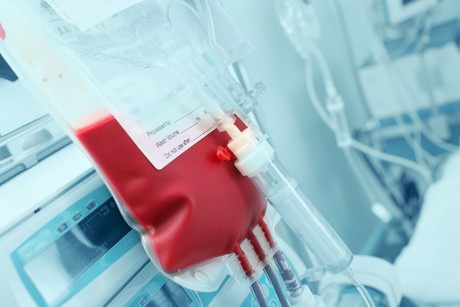Sequencing technology picks up the "spelling mistakes" in DNA

Researchers from South Australia are leading what they believe to be a genomic revolution — and they couldn’t have done it without the help of nine-year-old Angus Bond.
Angus suffers from the rare bone marrow disease Diamond–Blackfan anemia (DBA), which prevents bone marrow from producing enough red blood cells to move oxygen around the body. As a result, the South Australian schoolboy has had to undergo more than 100 blood transfusions during his short life.
The cause of Angus’s condition has always been something of a mystery, with years of tests failing to bear fruit. Even the world’s leading diagnostic laboratory in the United States could find no definitive answer. Now, genetic DNA sequencing technology deployed by the University of South Australia (UniSA) and SA Pathology has succeeded in pinpointing the exact genetic mutation.
“Using new genetic technology, we are now able to test a complete set of human genes in a single sweep, so we can see the ‘spelling mistakes’ in DNA,” said Professor Hamish Scott from South Australia’s Centre for Cancer Biology, who led the research team.
“By identifying these spelling mistakes we can more rapidly diagnose genetic diseases and cancer and pinpoint where to target our therapies, reducing both time and costs.”
Professor Scott’s lab was also able to identify why Angus was transfusion dependent for two years — in what doctors called ‘a spontaneous remission’. The results were published in the journal Haemotologica.
“In some of the cells in Angus’s bone marrow, the DNA from one chromosome had spontaneously copied itself to fill in the missing DBA gene,” Professor Scott said. “The finding raises the possibility of selecting for these repaired cells in patients or replicating the same changes in other patients using revolutionary gene or cell therapy approaches.”
According to Professor Scott, sequencing technology is “changing the way we understand human health and disease”. But while he claimed that South Australia is “at the forefront of this biomedical revolution”, he admitted that additional investment is required in order to continue this important work.
People can help support the research by donating to the Centre for Cancer Biology or the Captain Courageous Foundation, a not-for-profit organisation established by Angus’s mother Jessica, exploring cures for rare blood diseases.
Babies of stressed mothers likely to get their teeth earlier
Maternal stress during pregnancy can speed up the timing of teeth eruption, which may be an early...
Customised immune cells used to fight brain cancer
Researchers have developed CAR-T cells — ie, genetically modified immune cells manufactured...
Elevated blood protein levels predict mortality
Proteins that play key roles in the development of diseases such as cancer and inflammation may...





